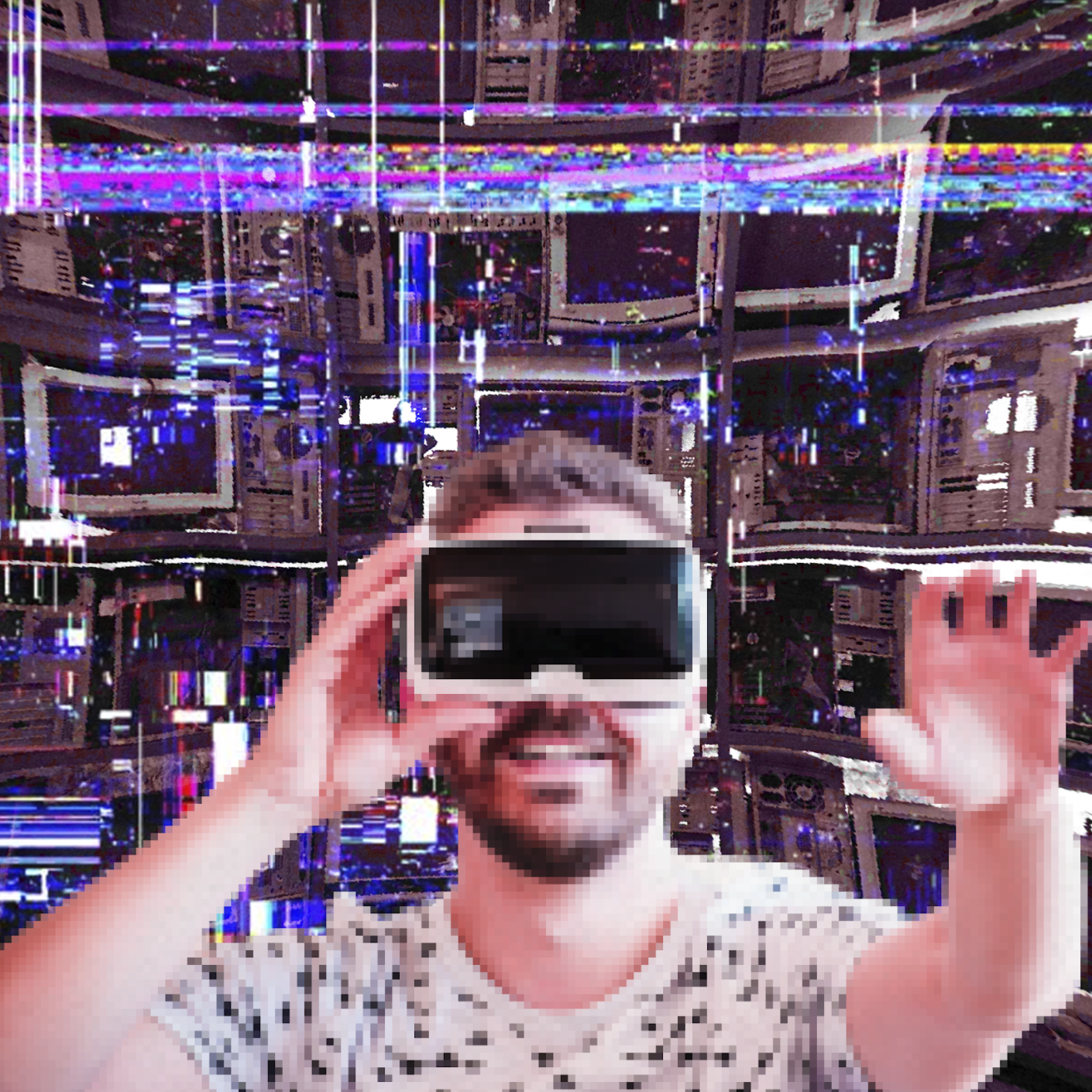The Future of Human Interaction
Imagine not having to leave your home and being able to perform all of your daily tasks through virtual reality. Haha, just kidding, unless...
BY: KHALIL ADEN
Artwork by Daniel Gomes // THE UNDEGROUND
When it comes to creating a video game, the creativity lies in the gameplay and story of the video game rather than the genre that you choose. The style has to compliment the story narrative and gameplay for it to succeed. But the genre doesn’t deviate from the formula that has been set in the gaming industry. FPSs, MMO RPGs,sandbox games, and the like have been done thousands of times over. Rarely do you see a game such as Ghost of Tsushima create new gameplay elements within their series. It's also rare that you see new genres as everything is played out with multiple game releases every year being the exact same. If you release an FPS, it's a military-esque shooter, or if you make an MMO RPG, you make sure it's based around magic.
In 2012, Palmer Luckey started a kickstarter for the Oculus Rift, the first major virtual reality device which raised $24 million. The Oculus Rift is a headset that emulates the world created by the developer. The player interaction in these games was as immersive as it gets with players using the Oculus controller, which mimics the user’s actions in real life and translates them into the virtual world.
This was a massive resurgence for VR as there have been versions dating back all the way to the 1930s, but there was never a strong backing with the invention. All of that changed when Facebook bought the technology from Luckey for a whopping $2 billion. Shortly after, you saw companies such as Google and Samsung try their hand at VR. But this was huge for the gaming industry as VR allowed for a very unique style of play. For the first time, the gamer had become the actual player in the video game.
But what would our lives look like if our daily routines were limited through only VR? Imagine waking up to go to work in the morning but all you do is brush your teeth, have some breakfast, and put on VR goggles. You're now in a meeting with your coworkers discussing the monthly budget all while sitting in your pajamas. Clocking out of your job now means you get to return back to the real world. Or imagine going grocery shopping but instead of entering the store, you walk through the aisles in VR looking at virtual apples and onions. You now get to wait at home for your groceries to be delivered to your doorstep. As someone who’s a homebody, these things sound great. But how close are we in the development of VR where this could be our reality?
Within the last few years, more and more employers have used VR as a means to train their employees. In 2018 Walmart announced that they would be training their employees using the Oculus Rift. Employees are trained in new VR software and emotional skills like empathy and customer service, as well as compliance. Verizon also trained their employees using VR, but rather than customer service, they focused on robbery and snatch and grab situations.
Virtual reality is at an early stage in its lifespan but has already accomplished a lot with the integration of VR into many businesses. The chance that VR can become the norm in business settings continues to increase. With the increase in usage, we should consider what implications VR has on the human mind and body before we decide to go all in on VR and eliminate physical human interaction.
Although there are upsides to VR including its entertainment and business purposes, it can also have a negative impact on its users. If VR were to be used as a primary communication method, it would eventually lead you down a path of loneliness and isolation. Interacting through VR limits the connection that we as humans strive for. Humans need social interactions with each other in order to combat loneliness and depression.
Some would argue that social interaction could be acted out through VR. That is definitely possible with VR chat rooms already existing, but I don’t think that a social connection that is built around a device or machine is as healthy as human to human relationship. Walking around as avatars in a virtual world isn’t an authentic experience. As soon as you turn off your device, what's left of your social life? Creating avatars also opens the doors for people to use false images to represent themselves. Which leads into the idea that VR is more viable as a means of entertainment rather than a replacement or addition to our reality.
If society as a collective decided that our only interaction would be through VR, there would be a rise in social isolation. Social isolation leads to increased levels of stress as well as inflammation. These symptoms can affect the functionality of your body; particularly it can increase the aging in your cardiovascular system and brain. Emma Seppala, of the Stanford Center for Compassion and Altruism Research and Education, stated that those who involve themselves in more social relationships have been known to have lower levels of depression and stress. Without these relationships your loneliness can directly impact your immune system, making you more susceptible to infections and illnesses. Individuals who exhibit little to no social interaction are more likely to die than those with a stronger social presence. The risk of death for the men and women who had the least amount of social interactions or ties with others was double than those who did.
VR is only a simulation of our reality but that doesn’t mean that it can still be used to prepare yourself for skills that are needed in the real world. People who aren’t as socially gifted could be building a companionship with others through VR. Those who suffer from social anxiety may feel more comfortable when in VR due to the interaction not being real. This could help with the development of your social skills, taking the next step in developing real world relationships. Similar to a training program that you would see businesses use for their employees. As long as VR is used as more of a stepping stone rather than a replacement for reality, it can benefit those looking to improve their skills.
Businesses can see the most benefit from VR due to its efficiency. Having simulation technology for businesses can help them train their employees and understand their consumers, as well as create a more accessible product. If you were able to shop using VR tech, it would be like shopping from the comfort of your home but actually being in the store. Imagine trying on clothing that you are interested in from your room or even allowing you to test drive that car you were thinking of buying. Companies have an opportunity to capitalize on their consumers’ laziness. Giving people more hands-on experience shopping from their homes would be revolutionary.
The integration of VR into our everyday lives is a complicated idea. On the one hand, you have businesses that can become more efficient and convenient for customers and themselves. On the other hand, you have situations where friendships and social interactions are replicated in VR but also an increase in isolation by limiting in-person contact. The best outcome would be balancing the limiting of interaction. Instead of moving all of our daily routines into the VR world, social interactions should be reserved for in-person interaction. I don’t think shopping or gaming in a virtual world is much of an issue. If we were to stop interacting with one another, that’s when it becomes more of a health problem and it raises valid concerns for the future.



